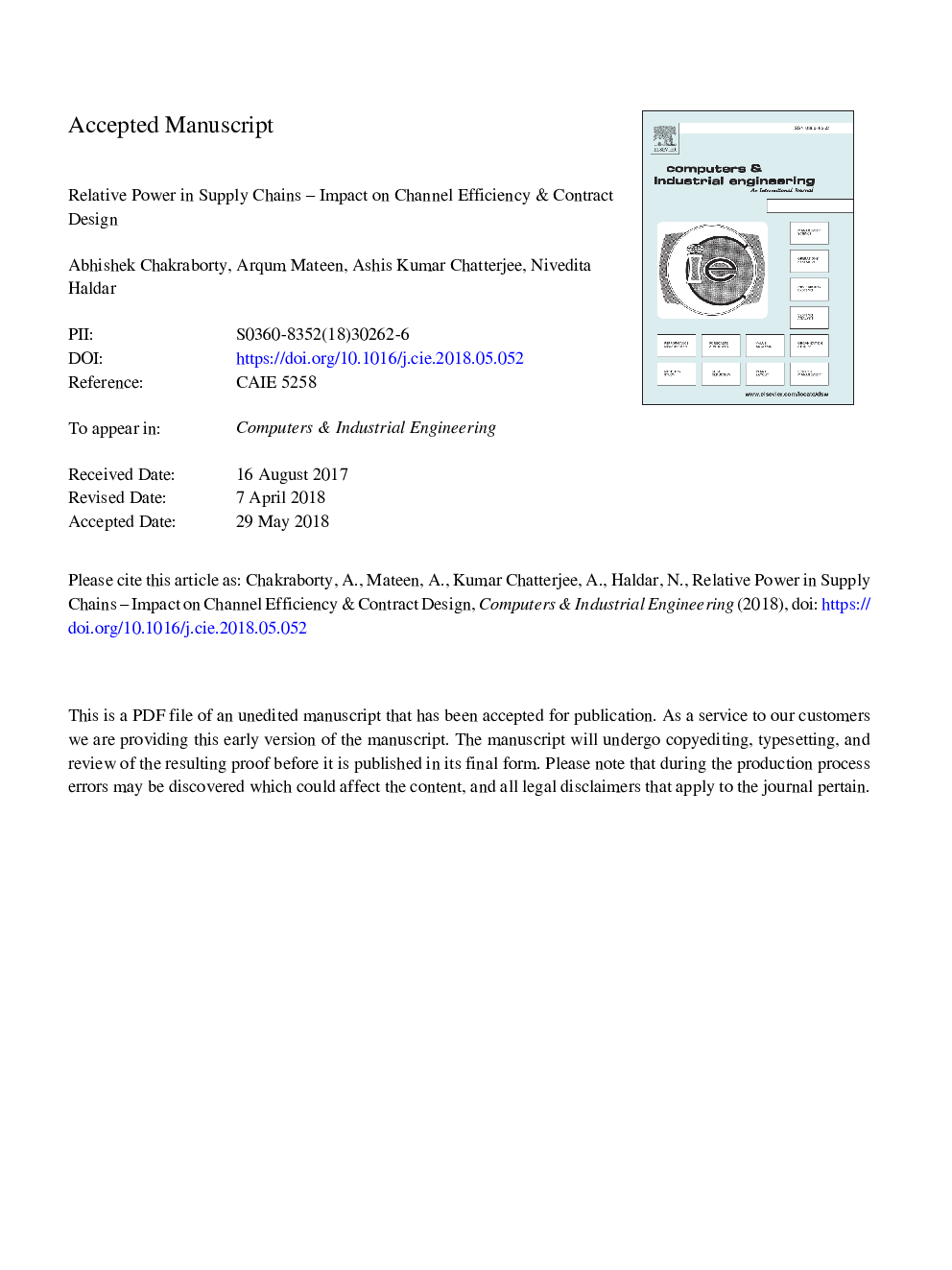| Article ID | Journal | Published Year | Pages | File Type |
|---|---|---|---|---|
| 7540976 | Computers & Industrial Engineering | 2018 | 30 Pages |
Abstract
The performance of a supply chain is often characterized by the power of decision making of the partners involved. Various decisions taken by different partners influence the overall profit of the chain and hence affect the channel efficiency. In this paper we have considered a two-echelon supply chain where the final demand depends upon both the retail price and the marketing expenses borne by the partners. Both the manufacturer and the retailer have been examined as the Stackelberg leader alternately. Profitability increases for the follower, while the leader suffers on account of being the Stackelberg leader. We have also shown that under these circumstances, both the wholesale price as well as the revenue sharing contract fails to coordinate the supply chain. We develop a hybrid revenue and cost sharing contract that coordinates the supply chain thereby making the chain fully efficient.
Related Topics
Physical Sciences and Engineering
Engineering
Industrial and Manufacturing Engineering
Authors
Abhishek Chakraborty, Arqum Mateen, Ashis Kumar Chatterjee, Nivedita Haldar,
